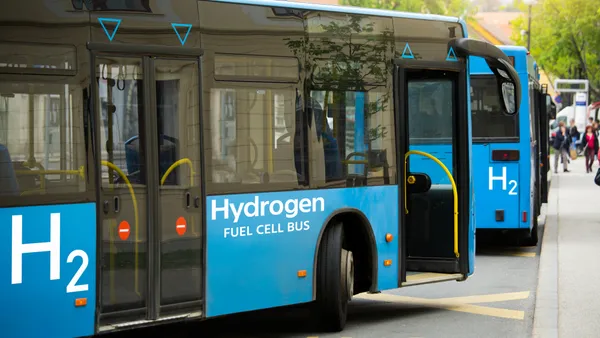When Nashville citizens voted on a massive transit overhaul in 2018, city leaders who pushed the $5.2 billion project were left disappointed: about 64% of voters rejected the plan.
Many local leaders and people following the situation did not anticipate the tide turning so precipitously against the referendum. Polls leading up to voting day suggested over 70% of residents supported the proposed higher taxes to fund transit.
TransitCenter analyzed the situation in a new report, detailing what went wrong and potential takeaways for other U.S. cities. An underlying theme of the report stands out: leaders were so intent to put a transportation package into place that they ignored the desires of citizens, the very people who would ultimately decide the initiative's fate.
Laying the groundwork
Former Mayor Megan Barry was elected in 2015 with transit as one of her three primary campaign issues.
Nashville is one of the country's fastest-growing cities, and the area's public transit system has not kept pace with the rapid growth. Traffic has topped citizen concerns over the past several years. Even prior to Barry's arrival, leaders recognized the city's transportation challenges — including the 2015 withdrawal of a bus rapid transit line — and the Nashville Metropolitan Transit Authority (rebranded as WeGo Transit) embarked on a comprehensive planning process that resulted in a regional transportation plan published in 2016.
Barry prioritized working with state legislators to enact the IMPROVE Act, which allowed ballot measures that propose tax increases to fund transit. After a four-month planning process the Transit for Nashville coalition formed, and the referendum plan, Let's Move Nashville, came out shortly after that.
Barry was extremely popular at the time and polling showed strong support for the transit expansion. But in January 2018, Barry and a bodyguard came under fire for accusations of misusing public funds. Six weeks later, she pleaded guilty to felony theft of more than $10,000 and resigned.
Eroding trust
The TransitCenter analysis shows that Barry's scandalous resignation turned the Transit for Nashville campaign into disarray. Additionally, the costs for Let's Move Nashville turned out to be about $3.5 billion higher than the figures initially quoted once operations, maintenance costs and debt services through 2032 were factored into the equation.
The report cites three major missteps that together significantly eroded the public's trust in government:
- Insularity: Barry and her transit campaign staff ignored or failed to seek stakeholder and expert information on how constituents would vote. They based assumptions on an existing long-range plan and didn't test the referendum plan with residents or community leaders before releasing it. The campaign's strong ties to the mayor caused it to falter when her scandal arose.
- Inconsistent strategy: The transit campaign touted equity and relied on support from African Americans, but the mayor's office repeatedly alienated them leading up to the vote. When the mayor's office attempted to align the transit strategy with affordable housing policy, many thought it was too late.
- Haste: By prioritizing speed in the 11 months between passing the IMPROVE Act and the public vote, the mayor's office let public engagement fall behind. People of color were also significantly underrepresented in those processes. The 55-page transit plan was presented to the public seven months before the vote, with changes right up until its release.
Avoiding pitfalls
The TransitCenter analysis offers numerous recommendations to avoid the situation that befell Nashville leaders, including:
- Act with appropriate urgency.
- Put the right people in charge.
- Identify viable funding sources and project sequencing.
- Include a diverse range of voices in the decision-making process.
- Build flexibility into the campaign to allow for adaptation to changing circumstances.
- Build the plan on a foundation of inclusive, meaningful public outreach.
- Don't take key constituencies for granted.
- Choose the right election to introduce a referendum to maximize the likelihood of success.
- Place equity at the heart of a transportation plan.
- Make improving access to high-quality transit the center of the planning process.
The report also offers a key piece of advice: "The referendum planning process requires civic leaders to seek the right balance between navigating the local political landscape and prioritizing meaningful transit improvements."












